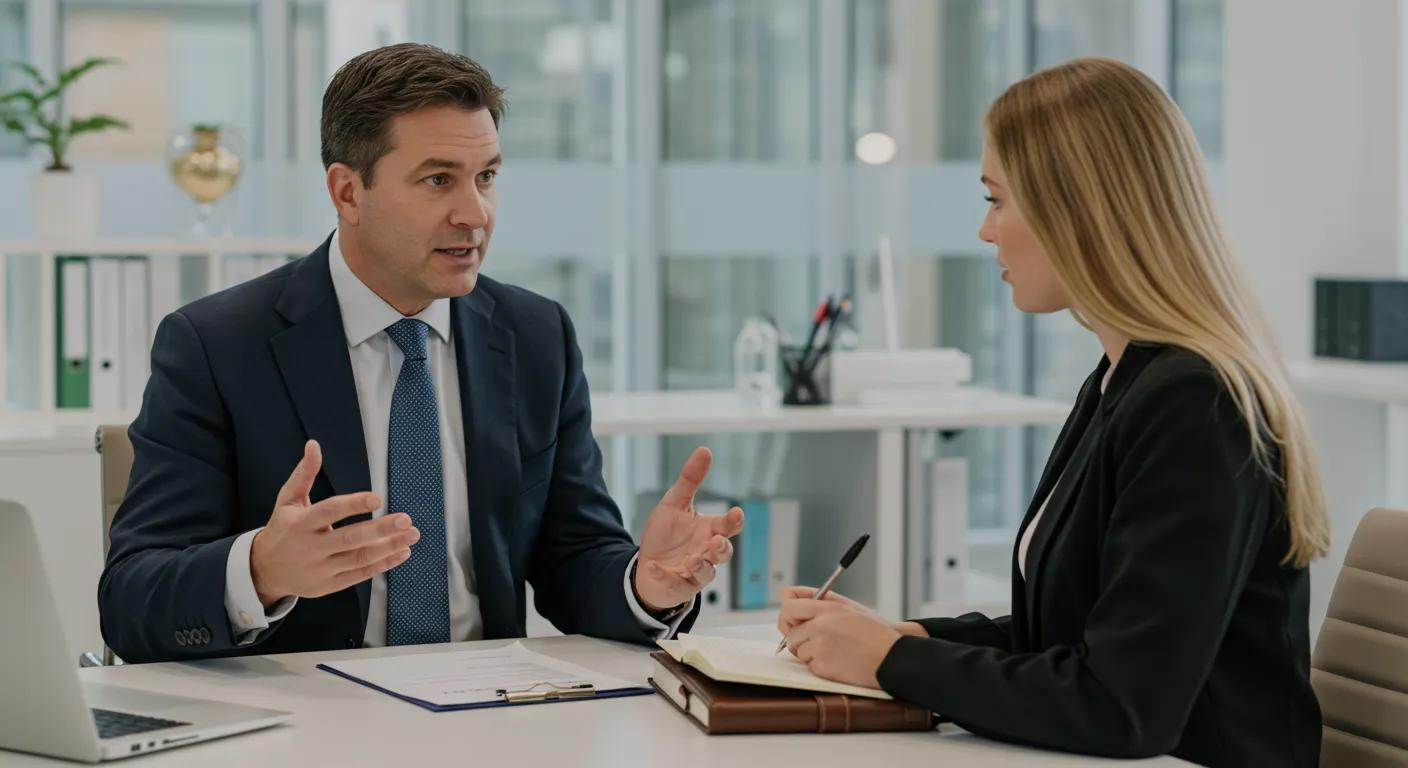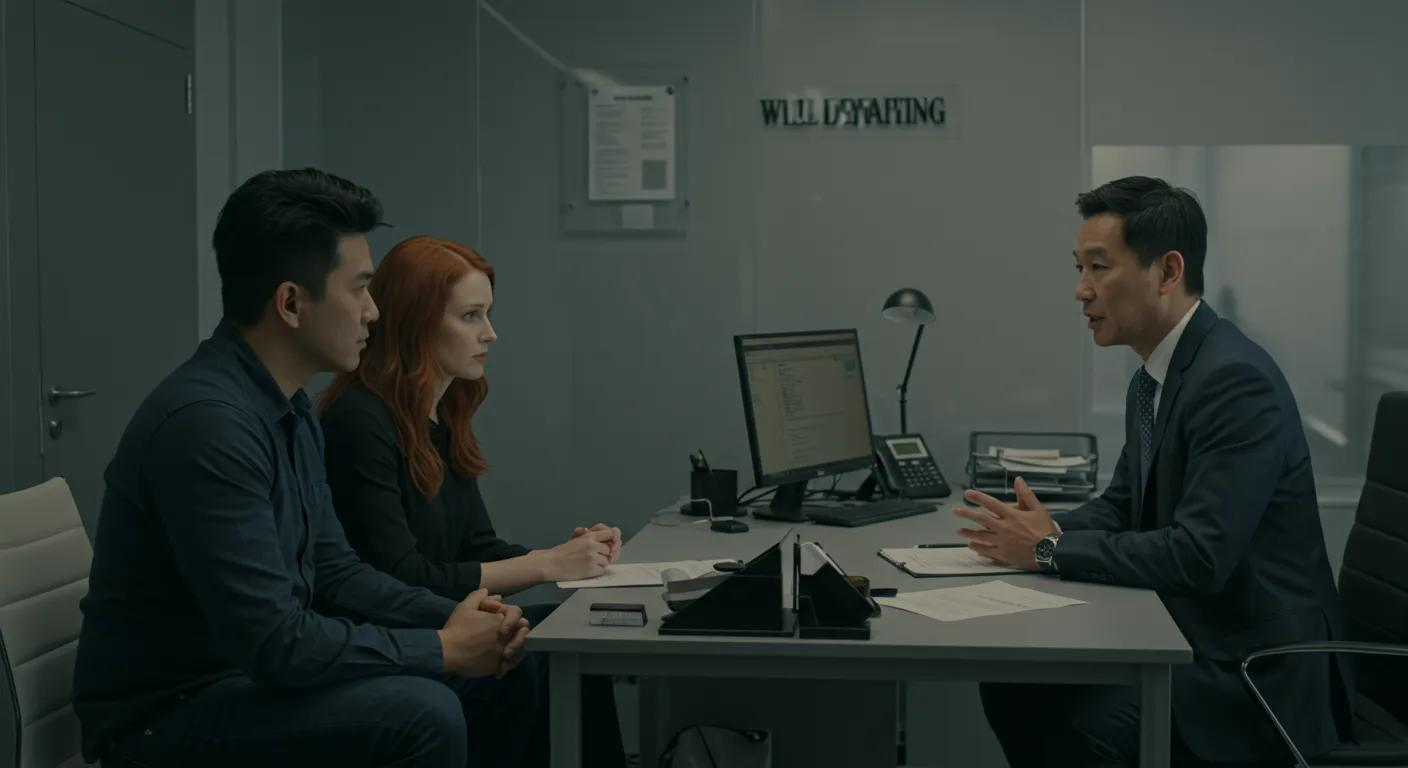
03 Nov Wills & Probate Solicitors Serving Shoreditch: Your Next Steps with RHJ Devonshire
Making informed choices about wills and probate protects your assets, reduces distress for loved ones, and ensures your intentions are honoured in line with UK law. This guide explains what wills and probate mean for residents and property owners in Shoreditch, outlines practical steps to prepare a will, and clarifies the probate process for executors and beneficiaries. You will learn when a will is essential, how probate applications typically work in London, and which estate planning tools—trusts and lasting powers of attorney—can reduce inheritance tax exposure and administrative friction. This guide maps practical checklists, step-by-step probate timelines, and clear examples of common local scenarios such as owners of Shoreditch property or families with overseas assets. Throughout, we show when it makes sense to get professional legal help and how RHJ Devonshire Solicitors can support tailored wills, efficient probate administration, and technology-enabled client service. Read on to understand your options, the likely timeline, and the next steps to secure trustworthy legal support.
What Are Wills and Probate, and Why Are They Important in Shoreditch?
A will is a legal document that records how your assets should be distributed at death, while probate is the legal process that authorises executors to administer that estate; together, they determine how property, money, and personal effects transfer to beneficiaries. These instruments work by establishing legal authority (the executor or administrator) and by creating certainty in distribution, which reduces the risk of disputes and delays. In Shoreditch, where property values, mixed residential-commercial holdings, and overseas connections are common, a clear will and considered probate planning limit complication and help preserve estate value for heirs. Understanding these basics helps you decide whether to draft or update a will and when to seek professional advice.
What follows are concise explanations of who needs a will, how probate proceeds in London, and the practical differences between a will and probate to guide your next actions.
What is a Will and Who Needs One in Shoreditch?
A will is a signed legal instrument that names beneficiaries, appoints executors, and sets out specific gifts or trusts to achieve your intentions after death. Individuals who commonly need a will in Shoreditch include homeowners with property, those with dependent children, business owners, and people with assets overseas—all situations where intestacy rules could produce unintended outcomes. Making a will also allows you to appoint guardians, create trusts for minors, and address business succession, which is especially relevant to Shoreditch business owners and professionals. Regular review is advisable after major life events such as marriage, childbirth, property transactions, or changes to business ownership.
Updating a will ensures it reflects current circumstances; the next subsection explains how probate interacts with a will in practice.
How Does the Probate Process Work in London?

Probate in London follows a sequence: identify the will, value the estate, settle liabilities (including inheritance tax where due), apply for the Grant of Probate, and then distribute assets to beneficiaries. The process requires documentation such as the death certificate, the original will, valuations of assets, and details of debts; complexity increases with overseas assets, business interests, or contested wills. Typical timeline ranges in London can be several months for simple estates and a year or more for complicated administrations, with delays driven by valuation disputes or the need to obtain foreign clearances. Executors should document steps carefully and consider professional help when estates include property, trusts, or cross-border issues.
Understanding probate stages prepares executors to manage responsibilities efficiently; the next part contrasts a will with the probate process itself.
What Are the Key Differences Between a Will and Probate?
A will is the testator’s written instruction for asset distribution; probate is the post-death legal procedure that gives executors authority to act and implements those instructions. The will is created during life and can be changed; probate is a judicial administrative process initiated after death to collect assets, pay debts, and make distributions. Parties involved differ: the testator and chosen executors are central to the will, whereas probate involves the Probate Registry, HM authorities, and recipients of estate distributions. Knowing this distinction clarifies why both a robust will and a planned probate route matter for preserving estate value and minimising disputes.
This distinction highlights practical choices when creating or revising a will, which leads to how specialist solicitors can assist with drafting.
How Can RHJ Devonshire Help You Make a Will in Shoreditch?

Professional will drafting combines legal accuracy with estate strategy: solicitors draft clear clauses, advise on trusts and succession, and ensure execution formalities are met to reduce future challenges. RHJ Devonshire Solicitors offers bespoke will-writing services tailored to individuals, couples, and business owners in Shoreditch, applying a commercially minded perspective to protect assets and achieve practical succession outcomes. Their client-centric approach uses smart technology to streamline document exchange and record-keeping, reducing administrative friction while preserving confidentiality. For many clients, this blend of legal detail and efficient processes makes it simpler to create mirror wills for couples, wills with testamentary trusts, or provisions for overseas asset management.
Next, we explain the common types of wills and when each is appropriate.
What Types of Wills Can RHJ Devonshire Draft for You?
Different will types meet distinct needs: a standard will suits simple estates, mirror wills are ideal for couples who share reciprocal wishes, and wills with testamentary trusts protect minors or beneficiaries with special needs. Business owners or those with cross-border assets often need bespoke clauses for succession, tax planning, and foreign asset administration; such provisions prevent unintended outcomes under intestacy or foreign law. Selecting the right structure depends on family dynamics, asset complexity, and tax considerations, and a solicitor helps map the optimal approach for each client. Understanding these options helps you choose the type that aligns with your personal and commercial objectives.
How Do You Update or Change Your Will with RHJ Devonshire?
Updating a will can be achieved through a codicil for minor changes or a full redraft when circumstances or intentions change significantly, such as marriage, divorce, births, or major property transactions. RHJ Devonshire recommends regular reviews and offers structured review processes via secure client portals to record changes and replace obsolete documents efficiently. Good record-keeping and clear execution protocols reduce the risk of later disputes and ensure the most recent valid document governs distribution. Knowing when to use a codicil versus when to redraft helps clients maintain legal certainty and aligns estate plans with current wishes.
What Is the Investment for Will Writing in Shoreditch?
Understanding the investment involved helps clients plan effectively. For straightforward will services, we offer clear fee structures, while for more complex situations, such as those involving trusts, business succession, or international assets, we will tailor to reflect the specific work required. We’ll always explain what’s included, such as drafting, guidance on witnessing, and secure storage options. For intricate trust drafting, tax planning, or cross-border advice, a precise quote will be provided after an initial consultation to assess your unique circumstances. We aim to provide clear outlines of your investment, reducing uncertainty and supporting informed decision-making.
Our clear approach to fees simplifies the decision to formalise your estate plan and prepares the way for probate considerations.
What Does the Probate Process Involve and How Can RHJ Devonshire Assist?
Probate administration is a sequence of legal and practical tasks: locating the will, valuing and securing assets, paying liabilities and taxes, obtaining the Grant of Probate, and distributing the estate to beneficiaries. RHJ Devonshire supports executors at each stage by preparing applications, liaising with valuers and financial institutions, and managing communications to reduce delay and legal risk. Practical support is valuable where estates include Shoreditch properties, business interests, or overseas assets that add legal complexity.
How Do You Apply for a Grant of Probate in London?
Applying for a Grant of Probate requires the original will, the death certificate, a detailed estate account, beneficiary and executor information, and an inheritance tax or probate application calculation where relevant. Common pitfalls include incomplete asset lists, undervaluation of property, and missing beneficiary details; solicitors help prepare accurate documentation and avoid procedural errors that can delay the registry. In London, local registry procedures and property valuation considerations make early engagement advisable, especially for estates with multiple properties or international assets. A solicitor’s involvement accelerates form completion, liaises with valuers, and supports timely submission.
What Are Executor Duties During Estate Administration?
Executors are responsible for identifying and securing assets, paying debts and taxes, obtaining valuations, distributing assets as the will directs, and keeping accurate records for beneficiaries. Duties also include notifying banks, insurers, HM authorities, and relevant professionals, preserving estate value, and responding to potential claims or disputes. Executors may appoint solicitors for complex tasks such as valuing businesses, managing foreign assets, or addressing contentious claims; delegating specialist tasks preserves time and reduces personal liability. Understanding these responsibilities helps executors decide where to act personally and where to instruct professional support to maintain momentum.
How Long Does Probate Take and What Is the Typical Investment?
Probate duration varies: straightforward estates often conclude within 6–9 months, while complex administrations with overseas assets or disputes can take 12–24 months or longer. The overall investment includes Probate Registry fees, professional fees for solicitors and valuers, and potential tax liabilities such as inheritance tax. Our professional fees reflect the estate’s complexity and the level of support you require. Factors extending timelines include missing documentation, contested wills, complex trust structures, and overseas jurisdictions requiring separate procedures. Early engagement with advisers and accurate valuation reduces unexpected delays and helps manage investment expectations.
What Happens If Someone Dies Without a Will in Shoreditch?
If a person dies intestate, UK intestacy rules determine inheritance, which can produce results differing from what the deceased might have intended, particularly for unmarried partners or complex family structures. Intestacy often leads to administrative complexity, potential family disputes, and delays while administrators establish legal entitlement; professional legal advice helps clarify who inherits and how to proceed with estate administration. For estates with property, business interests, or overseas assets, intestacy increases uncertainty and can complicate transfers across jurisdictions. Immediate steps include securing assets, locating advisors, and, where possible, obtaining legal guidance to establish the correct administration route.
Understanding intestacy underscores why a valid will is a core component of effective estate planning and probate readiness.
How Does Estate Planning and Inheritance Tax Advice Work with RHJ Devonshire?
Effective estate planning combines wills, trusts, and tax-aware strategies to preserve value for beneficiaries and reduce exposure to inheritance tax where legitimate reliefs apply. RHJ Devonshire provides strategic planning that uses trusts, gifting strategies, and residence nil-rate band considerations to align client objectives with the current UK tax framework. Their approach emphasises bespoke plans that reflect personal circumstances, commercial interests, and cross-border complexities often encountered by Shoreditch residents. Below is a comparison table of common IHT planning strategies, their attributes, and typical use-cases.
What Are the Current Inheritance Tax Thresholds and Exemptions in the UK?
Current thresholds include the nil-rate band and the residence nil-rate band, which together can significantly affect estate tax exposure for homeowners; exemptions also exist for spouse transfers and certain gifts. Practical implications depend on total estate value, property ownership, gifting history, and whether the residence nil-rate band conditions apply, so personalised advice is necessary to understand precise liabilities. Solicitors and tax specialists work together to model outcomes under current rules and to recommend appropriate strategies such as trusts, lifetime gifting, or use of reliefs. Regular review is important because thresholds and rules can change over time, affecting planning choices.
How Can Trusts Protect Your Assets in Shoreditch?
Trusts allow control over how and when assets pass to beneficiaries, offering protection from immediate dissipation, risks from beneficiary incapacity, and certain tax efficiencies when used correctly. Different trusts serve different goals: discretionary trusts provide flexible distribution, life interest trusts secure income for a spouse, and protective trusts shield assets for minors or vulnerable people. For Shoreditch property owners and those with business interests, trusts can separate ownership from control and manage cross-border implications where foreign assets are involved. Choosing the right trust requires careful legal drafting and ongoing administration advice to avoid unintended tax or control consequences.
What is a Lasting Power of Attorney and Why Is It Important?
A Lasting Power of Attorney (LPA) allows you to appoint trusted people to make decisions about your property, finances, or health and welfare if you lose mental capacity, and it is essential to avoid delays and court intervention later. There are two main LPAs: property and financial affairs, and health and welfare, each serving distinct functions; registering them ensures appointed attorneys can act when needed. Solicitors assist by explaining options, drafting the documents to reflect preferences, and registering LPAs with the Office of the Public Guardian to make them effective. Setting up LPAs as part of estate planning safeguards day-to-day decision-making and complements wills and trusts for comprehensive protection.
LPAs complete the core estate planning toolkit and reduce the need for future court appointments, which improves family certainty.
What Are Common Legal Scenarios That Require Wills and Probate Services in Shoreditch?
Local life events often trigger a need for wills and probate: new parents want guardianship provisions, property transactions or ownership within Shoreditch mean succession planning is critical, and business owners require succession clauses to avoid operational disruption. Other frequent scenarios include estates with overseas assets or families facing contentious claims; each situation has specific legal steps and timelines to manage. Addressing these scenarios early reduces risk, minimises administrative delays, and helps align estate outcomes with family and commercial objectives.
- New parents seeking guardianship and trusts to protect children.
- Owners of Shoreditch homes or mixed-use properties planning succession.
- Families with overseas assets need cross-border estate coordination.
These scenarios illustrate why tailored legal advice is essential to avoid unintended consequences and manage timelines proactively.
How Do Wills Help New Parents in Shoreditch Secure Their Family’s Future?
For new parents, wills provide a mechanism to appoint legal guardians, create trusts for children’s financial support, and set instructions for how funds should be managed until children reach specified ages. Well-drafted provisions can protect inheritance from mismanagement and ensure trustees follow the parents’ intentions, which is particularly valuable in areas where housing and living costs may influence financial needs. A solicitor helps craft clear guardian appointments and trust terms and recommends review intervals as family circumstances evolve. Taking these steps early brings confidence that children will be cared for and provided for according to parental wishes.
Preparing guardianship and trust clauses reduces uncertainty and sets a clear path for future guardians and trustees.
How Is Probate Handled for Estates with Overseas Assets?
Estates with overseas assets often require separate local procedures in other jurisdictions in addition to UK probate, making administration multi-jurisdictional and potentially time-consuming. Practical steps include identifying which assets are governed by foreign law, obtaining local clearances, and coordinating valuations and distributions across legal systems. Specialist advice is necessary to avoid double tax exposure, meet documentary requirements, and ensure that foreign titles or accounts transfer correctly to beneficiaries. Early identification of overseas holdings and engagement with cross-border experts reduces delays and prevents administrative surprises.
What Are Contentious Probate Issues and How Can RHJ Devonshire Support You?
Contentious probate arises from disputes such as challenges to a will’s validity, allegations of undue influence, claims under the Inheritance Act, or disagreements over estate administration. RHJ Devonshire adopts a pragmatic approach that seeks early resolution through negotiation or alternative dispute resolution where possible, while remaining prepared to litigate to protect clients’ rights. Identifying red flags early—unclear execution, capacity concerns, or missing documentation—allows the firm to advise on risk management and evidential needs. Having legal representation from the outset often preserves estate value and reduces the emotional burden on families.
Early legal intervention and clear documentation reduce the likelihood and impact of contentious claims on estate administration.
Why Choose RHJ Devonshire Solicitors for Wills and Probate in Shoreditch?
Choosing a specialist firm combines technical legal skill with a client-focused process that reduces delay and uncertainty; RHJ Devonshire emphasises bespoke, commercially minded solutions that suit individuals and business owners alike. The firm integrates technology to improve client experience, using secure document exchange and efficient workflows to cut administrative friction and maintain transparency. This approach is complemented by a client-centric service model that aims to explain options clearly and support sensible, well-documented estate planning and probate administration. These qualities help clients in Shoreditch navigate complex estates and preserve value for beneficiaries.
- Bespoke legal solutions tailored to personal and commercial complexity.
- Technology-enabled processes that speed communication and document handling.
- Client-centred advice focused on clear outcomes and trust-building.
These features combine to deliver practical, efficient legal support for wills and probate matters in Shoreditch.
What Makes RHJ Devonshire’s Service Bespoke and Commercially Minded?
A bespoke, commercially minded service assesses both personal and business risks to design clauses that address succession, continuity, and tax implications for business owners and professionals. Examples include tailored business succession provisions, specific trust mechanisms for commercial assets, and clauses that align personal wishes with corporate realities. This commercial lens helps ensure that legal instruments protect enterprise value while fulfilling personal distribution goals. Clients benefit from pragmatic drafting that anticipates operational needs and minimises future disputes.
Commercial thinking in wills avoids common pitfalls that can disrupt businesses after an owner’s death and supports continuity planning.
How Does RHJ Devonshire Use Innovation and Technology to Improve Legal Services?
The firm uses secure client portals and streamlined digital workflows to reduce paperwork, accelerate document exchange, and keep clients informed about progress, which enhances speed and transparency. Technology also supports efficient record-keeping and secure storage of wills and LPA documents, reducing the administrative burden on clients and improving accessibility when documents are needed. These innovations cut turnaround times for routine tasks and free legal teams to focus on substantive advice and problem-solving. Clients gain predictable processes and a clear audit trail of actions taken during will drafting and probate administration.
Digital-first processes complement legal expertise to improve client outcomes and responsiveness.
What Do Shoreditch Clients Say About RHJ Devonshire?
Clients regularly cite clarity of advice, efficiency of processes, and personalised attention as reasons they trust a dedicated private client team, and these themes underpin the firm’s approach to wills and probate. Non-identifying feedback highlights the value of practical, outcome-focused solutions that match personal and commercial complexities. The firm encourages open communication and explains the investment and timescales to set realistic expectations from the outset. Positive client experience often reflects the combination of legal rigour and ease of engagement.
Consistent client focus reinforces the value of professional support when planning estates or administering probate.
What Are Your Next Steps to Secure Expert Wills and Probate Advice in Shoreditch?
Taking the right next steps streamlines outcomes: gather essential documents, decide on desired provisions, and arrange an initial consultation to discuss objectives and likely fees. RHJ Devonshire provides a clear onboarding process and transparent fee discussions during an initial meeting and will explain required documentation and expected timelines. Preparing ahead accelerates drafting or probate work and reduces costs by avoiding repeated information requests. Below are practical next steps to prepare for a meeting with a wills and probate solicitor.
- Compile a list of assets and liabilities, including property, bank accounts, and investments.
- Locate existing wills, marriage certificates, and any trust documents.
- Make a note of beneficiaries, potential executors, and any business or overseas asset details.
Completing these preparatory steps enables a focused first meeting and helps the solicitor provide accurate advice and fee estimates.
How Can You Book a Consultation with RHJ Devonshire Solicitors?
Booking a consultation involves contacting the firm and providing a brief outline of your matter so the team can assign an appropriate specialist; RHJ Devonshire’s office is located at 8 Devonshire Square, London, EC2M 4PL. During your consultation, we’ll set clear objectives, outline required documents, and discuss the appropriate fee structure for your specific needs, whether it’s a clear fee for straightforward matters or a tailored quote for more complex situations. The initial appointment is designed to clarify your goals, identify key risks, and map the next actions to move forward efficiently. Knowing what to bring and what to expect helps make the meeting productive and cost-effective.
Clear appointment preparation shortens the time to implementation and allows for a precise scope and fee estimate.
What Information Should You Prepare Before Meeting a Probate Lawyer?
Bring a list of assets and liabilities, original wills or copies, recent bank statements, property deeds, details of business interests, and any information about overseas assets; also have names and contact details for potential executors and beneficiaries. Preparing valuations where possible and noting any suspected claims or disputes speeds initial assessment and identifies likely complexities early. Good record-keeping and a chronological summary of relevant events reduce the solicitor’s research time and help produce an accurate fee estimate. This preparation supports a focused engagement and smoother administration overall.
Thorough preparation helps the solicitor provide clearer timelines and tailored advice during the first consultation.
How Does RHJ Devonshire Ensure Transparent Pricing and Clear Communication?
We provide clear examples of our fee structures for common services and explain when tailored quotes apply for complex trusts, business succession, or international matters. This ensures you understand what’s included and any potential additional investments. RHJ Devonshire emphasises a regular communication cadence, setting expectations for updates and providing secure access to documents to keep clients informed at each stage. We are committed to your satisfaction and have processes in place to address any concerns promptly, ensuring the highest quality of service. Transparent cost outlines and consistent communication reduce uncertainty and help clients make confident decisions.
Clear pricing and reliable updates provide reassurance during both will drafting and probate administration.
